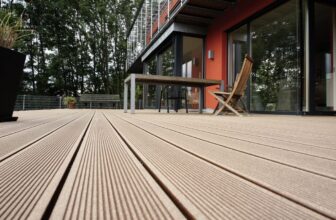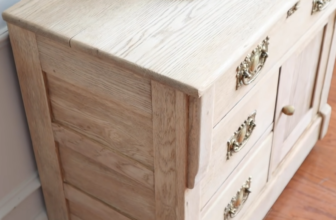Finishing your woodworking project is a crucial step that not only shields it from harsh weather conditions but also elevates its aesthetic appeal. With a vast array of wood finishes available, choosing the perfect one for your project can be daunting. Fear not! In this enlightening blog post, we’ll take you on a journey to compare the magnificent benefits of oil-based and water-based wood finishes. So, buckle up and prepare to make the right decision that will leave both you and your project feeling ecstatic!
Oil-Based Wood Finishes
Oil-based wood finishes typically consist of oils, resins, and solvents blended to create a protective layer on the wood’s surface. These finishes can be applied as liquids or pastes, depending on the desired effect. Oil-based finishes are often chosen for high-traffic areas like floors and furniture due to their durability. They provide superior water resistance compared to other wood finishes.
- Wood oil (tung oil/linseed oil)
- Oil-based polyurethane
- Oil-based lacquer
- Shellac-based finishes
Water-Based Wood Finishes
Water-based finishes primarily consist of water, resins, and solvents that form a protective layer on the wood’s surface. They are typically applied as liquids or sprays. This type of finish is often used for projects that require low-VOCs (volatile organic compounds), such as kitchen cabinets and other interior surfaces.
- Water-based polyurethane
- Acrylic finishes
- Latex finishes
- Water-based lacquer
- Shellac-based finishes
Comparison of Oil-Based and Water-Based Wood Finishes
Differences in Appearance and Texture
Oil-based wood finishes typically offer a glossy appearance and a rich, deep color that enhances the wood’s look. They also provide a hard, protective layer that repels dirt, dust, and debris. In contrast, water-based wood finishes tend to have a matte finish that may be less visually appealing. They offer less protection against wear and tear and are more susceptible to damage from water, sunlight, and other elements.

Differences in Durability
Oil-based wood finishes provide superior protection due to their higher concentration of resins and solvents, making them more durable against wear and tear. Water-based finishes may be more eco-friendly but are less durable and protective compared to oil-based finishes.
Ease of Application and Maintenance
Oil-based wood finishes are generally more labor-intensive, requiring more time and sometimes additional tools like brushes or cloths for even application. Water-based finishes are easier to apply since they come in liquid form, allowing quick application with a paintbrush or roller. Both types require regular maintenance and reapplication to preserve their protective layers.
Comparison table Oil-based vs Water-based Finishes
| Comparison Point | Oil-Based Finish | Water-Based Finish |
|---|---|---|
| Drying Time | Longer drying time, typically 24-48 hours | Quick drying time, usually within a few hours |
| Number of Coats | Fewer coats required, usually 2-3 coats | More coats required, typically 3-4 coats |
| Odor | Strong odor from solvents | Minimal to no odor |
| Appearance | Amber or yellow tint, can darken over time | Clear, does not typically yellow with age |
| Durability | Highly durable and resistant to wear and tear | Generally less durable than oil-based finishes, can scratch easily |
| Environmental Impact | Contains solvents that release volatile organic compounds (VOCs) | Low VOC content, better for the environment and indoor air quality |
| Health Considerations | Can cause headaches, dizziness, and other health problems if inhaled | Less harmful to health than oil-based finishes |
| Price | Generally less expensive than water-based finishes | Typically more expensive than oil-based finishes due to extra coats |
Conclusion
Choosing between oil-based and water-based wood finishes is primarily a matter of personal preference, as each type has its own advantages and disadvantages. Oil-based finishes offer greater durability and better protection against wear and tear, though they may be challenging to apply. Water-based finishes provide a matte finish, are easier to apply, and are more eco-friendly. Regardless of your choice, proper maintenance is essential to keep your wood looking its best.








